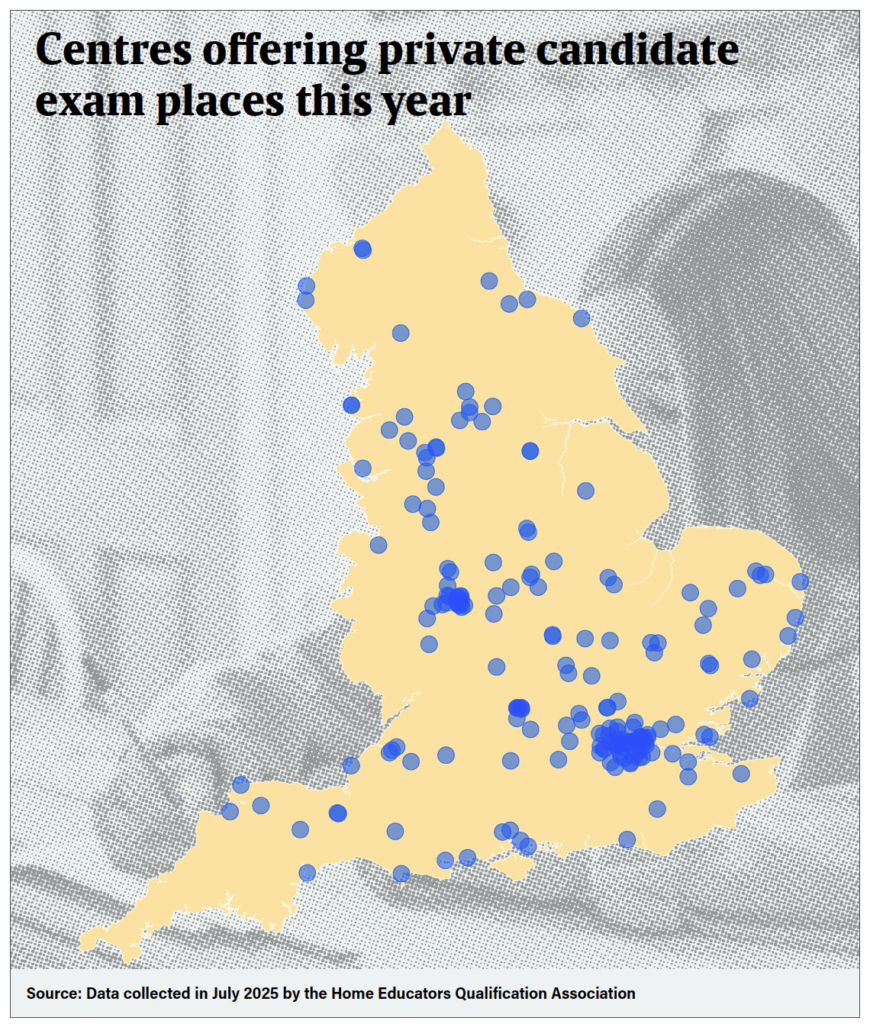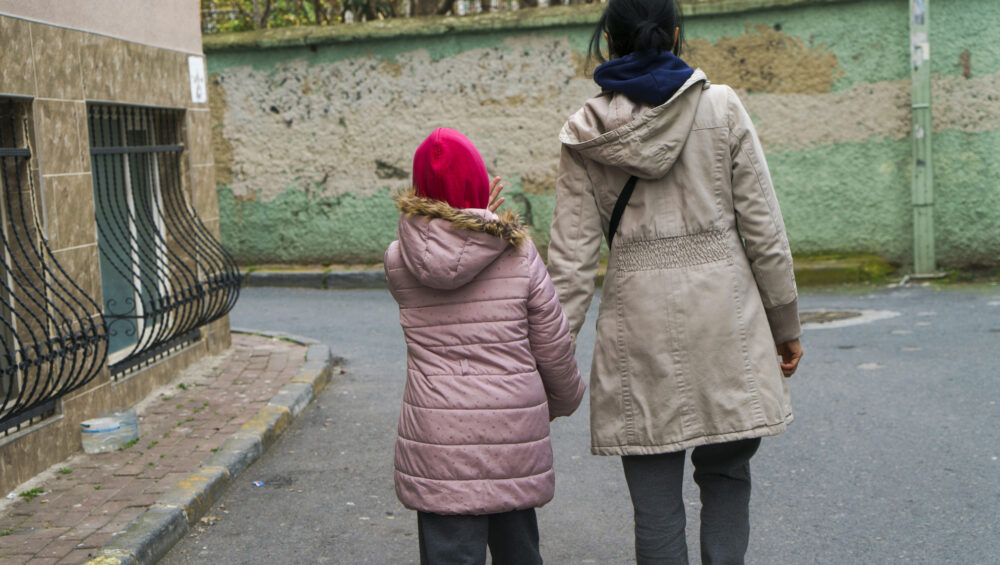A surge in home education has left many families struggling to find places for their children to sit GCSEs, with some “reduced to begging” as overwhelmed exam centres shut their doors.
Children not educated in school must be entered as private exam candidates to sit GCSE and A-level tests.
But the few exam centres who do accept such pupils have been overwhelmed by surging demand, experts say.
Analysis shows at least 10 centres have closed to private candidates in the past year – leaving families scrambling to find a place.
Others are being forced to travel dozens of miles to sit exams to gain vital qualifications – with costs also rising.
‘There’s nothing you can do about it’
“There’s no backstop with a responsibility to make sure exam access is available to all,” said home educator Katie Finlayson.
“Access relies on either commercial viability or the generosity of schools … home educators are very vulnerable to a school or centre closing its doors, because when it comes to it everyone can just say no and there’s nothing you can do about it.”
The Joint Council for Qualifications (JCQ) has an interactive search tool to find exam centres based on postcode and exam board.
Finlayson, who runs the Home Educators Qualification Association (HEQA), said this listed 180 centres overall in July 2025 but that there are another 27 not listen by JCQ, taking the total to 207.

Analysis shows 69 of these have a limited offer, such as only offering core subjects or little access arrangement. At least 10 have stopped accepting private candidates in the past year.
All but one of the closed centres did not respond to requests for comment about why they shut.
But Finlayson said it was likely because they were “unable to cope with rising demand.” A school near her in north Wales has already seen 25 enquiries for next summer and a centre in Norfolk reported having 130 requests for 18 spaces.
An estimated 111,700 children are now being home educated, with numbers rising 20 per cent last year alone.
Finlayson pointed to “increasing in-school pressure on exam officers, invigilators and exam rooms”.
LBC Tuition Centre, in Keighley, temporarily closed to private candidates because it has been unable to replace an exams officer who left.
‘It’s soul-destroying’
Mohammed Nadeem, from LBC, said it was still experiencing calls “every day” for candidates and they had seen a “massive increase” in demand. It plans to open another building in Shipley to house the exams once they have enough staff in place.
Faregos Home Education Group, in Hampshire, had a 45 per cent increase in private exam candidates in the past two years. For the upcoming summer maths GCSE, the centre has accepted 120 candidates – and turned away more than 200.
“It’s soul-destroying not being able to help,” Sarah Large from Faregos said. “We are turning away people in vast numbers, and this year has been far and away the worst year ever.”
Finlayson added many centres now “reach capacity long before exam entry deadlines”.
‘Reduced to begging’
Clare Emmerson, who taught her four children at home in Cumbria, said she has been “reduced to begging on an annual basis”.
Two of her children had to make a 40-mile round trip for their tests in 2022 and 2023. She wanted them to sit them at their local school but plans fell through after the exam officer retired. Her youngest sat exams at a local agricultural college in 2023.
According to analysis by HEQA, two-thirds of 120 home educators surveyed travelled 20 to 50 miles away for exams in 2022, while 10 per cent said they travelled more than 100 miles.
The analysis also suggested that 85 per cent of respondents paid between £100 and £200, with the average cost being £160.
Ofqual analysis found that the cost of a GCSE for pupils in school was £57.
Clare O’Connell, from Telford, has already started planning for her 14-year-old daughter to travel to Birmingham to sit her GCSEs in 2027, a 70-mile round-trip. Her daughter has autism and hearing difficulties, and exams with access arrangements can cost about £300.
“She won’t be able to cope with other people,” O’Connell warned, otherwise she would have “paid £1,000 for her to sit an exam paper that she hasn’t done”.
‘Additional cost for schools’
Home educators have called on schools to take more private candidates.
But a spokesperson from school leaders’ union NAHT said providing support “comes at an additional cost to schools who are working within the constraints of already insufficient budgets”.
However, Joanna Merritt, a researcher in home education at the University of Exeter, said: “Home education is another school choice, and it holds equal weight in law … so why are they not given equal access to exams when they’re the key marker for moving forward?”
NAHT suggested councils could fund schools to open their exam halls to more private candidates.
Merritt added: “If there was a duty on local authorities to provide a place to take your exam and fund any additional cost of reasonable adjustments, that would probably be the best of all scenarios.”
















Your thoughts